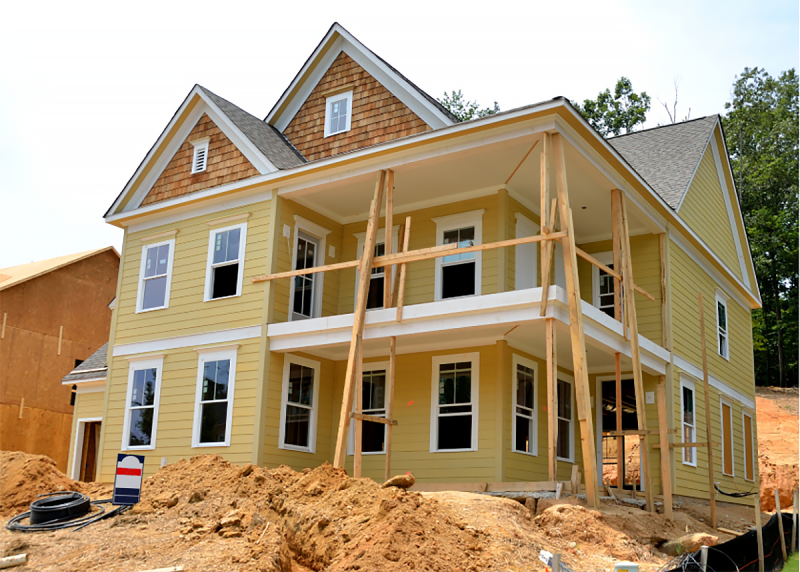Advertisement
Massachusetts Gov. Patrick signs bill protecting tenants in foreclosed properties

Continuing the Patrick-Murray Administration's commitment to keep people in their homes and stabilize neighborhoods across the Commonwealth of Massachusetts, Gov. Deval Patrick has signed into law a package of comprehensive foreclosure initiatives. The legislation, "An Act Relative to Mortgage Foreclosures," expands help for homeowners facing possible foreclosure, creates new protections for tenants renting apartments in foreclosed buildings and establishes mortgage fraud as a crime.
"Even as Massachusetts continues its economic recovery, thousands of families are still dealing with the effects of foreclosure and they need immediate assistance," said Gov. Patrick. "Combined with the 2007 comprehensive foreclosure law, we are redoubling our efforts to address the foreclosure crisis."
The bill extends the 90-day right-to-cure on foreclosures created in 2007 to 150 days, and requires lenders to make good-faith efforts to address a homeowner's financial difficulties. The longer waiting period gives the lender and homeowner more opportunity to find workable solutions that, in the long term, can help keep a family in its home.
"As our economy continues to recover, we need to leverage and expand existing resources to support residents across the state," said Lieutenant Gov. Timothy Murray, chair of the Interagency Council on Housing and Homelessness. "By partnering with the legislature on this bill, we will deliver enhanced foreclosure protection and assistance for Massachusetts homeowners and renters."
"As folks across the Commonwealth continue to struggle to make ends meet, this bill will institute measures to help keep our residents in their homes," said Massachusetts House Speaker Robert A. DeLeo. "In these uncertain fiscal times, this new law aims to provide a degree of stability to the families of Massachusetts."
“This new law will better protect Massachusetts homeowners from instances of predatory lending,” said Massachusetts Attorney General Martha Coakley. “It closes significant loopholes and provides law enforcement with important new tools to effectively prosecute cases of mortgage fraud. I want to thank Governor Patrick, Senate President Murray, Speaker DeLeo and the members of the Legislature—particularly Sen. Tucker and Rep. Honan—for their leadership on this important legislation.”
The new law also establishes mortgage fraud as a crime, a provision that gets to the source of certain dangerous practices that led to a pattern of default mortgages over the past few years. Additionally, the law creates straightforward consumer protections in the area of reverse mortgages—a product that does not fit all situations and requires careful education and consideration by homeowners. Tenants also receive increased protection against foreclosure under this law, as it requires proof of just cause before a tenant can be removed from a foreclosed property.
This law builds on the foreclosure assistance provisions created by Gov. Patrick in 2007 that extended licensing requirements to individual mortgage loan originators, resulting in the Division granting $3.8 million in loan originator fees to support regional foreclosure prevention efforts. This legislation also extended first in the nation Community Reinvestment Act-type standards to non-bank mortgage lenders to ensure mortgage loans provided are suitable and sustainable, and mandated the licensing of mortgage originators and other regulatory changes that added new oversight to the industry.
"The Commonwealth has acted on behalf of its citizens who are facing difficult times and in too many cases, a crisis. This is more than just helping individual homeowners and renters; this is stabilizing entire communities, which are the cornerstone of a strong economy and a strong Commonwealth," said Rep. Kevin Honan, House Chair of the Joint Committee on Housing.
"Governor Patrick's signing of this legislation will not only provide additional protection for homeowners and tenants who are in danger of foreclosure, but it will also keep neighborhoods stable, especially those that have already been hard hit by foreclosure activity," said Tina Brooks, Undersecretary of the state Department of Housing and Community Development which administers state and federal Neighborhood Stabilization Programs to help communities fight the affects of foreclosure.
For more information, visit www.mass.gov/foreclosure.
About the author




